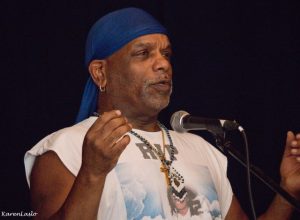by Dave Waddell
SACRAMENTO – When a conservative federal judge this week blocked claims for damages sought by Desmond Phillips’ family, Chico Police Chief Mike O’Brien quickly spun out a press release saying the judge had justified Phillips’ controversial police killing.

Desmond Phillips
However, Ben Nisenbaum, an attorney for the family, told ChicoSol in a Wednesday phone interview that Judge John Mendez erred in his rulings in court Tuesday. Once Mendez’s words are sorted out, Nisenbaum believes Phillips’ survivors will get the jury trial they are seeking.
Mendez, a judge in the U.S. District Court, Eastern District of California, in Sacramento, dismissed civil claims that had been filed by the family of 25-year-old Desmond Phillips, an African-American man who was suffering from a mental crisis when he was killed in his own living room by two young Chico police officers. The family’s complaint alleged violations of both federal and California laws.
Nisenbaum indicated that once a transcript of Tuesday’s hearing is prepared, he will ask Mendez to reconsider his dismissal of several state claims made by Phillips’ survivors, including his father David Phillips and mother Delphine Norman.
“I’m very troubled by the court’s ruling,” Nisenbaum said. “I suspect he’ll reverse himself on a motion for reconsideration” within the next few weeks.
Nisenbaum also indicated that if the state claims are not reinstated, an appeal by his clients to the U.S. Court of Appeals for the Ninth Circuit is sure to follow.
Chief O’Brien’s press statement says Mendez confirmed that the conduct of the officers was lawful and justifiable and their use of force neither excessive nor negligent. The judge granted the city’s request for a “summary judgment” in its entirety, dismissing all nine damage claims made by the plaintiffs. Summary judgment means to decide in favor of one side against another without a full trial.
“Although a tragic incident, the Chico Police Department concurs with this important ruling,” O’Brien said.

Chico Police Chief Mike O’Brien
Phillips was killed March 17, 2017, by two officers, Alex Fliehr and Jeremy Gagnebin. Together, they fired 16 rounds, hitting Phillips 11 times. Just seven seconds elapsed from the time Phillips was felled by a Taser until the officers started shooting him with pistols.
A law enforcement expert hired by the plaintiffs, Roger A. Clark of Santee, Calif., said in a report earlier this year that Fliehr and Gagnebin inexplicably froze after Phillips was, as planned, shot to the floor with a Taser by officer Jared Cumber. Clark argues that when Phillips unexpectedly got to his feet, and while he still was feeling the effects of Cumber’s stun gun, Fliehr and Gagnebin unleashed a barrage of gunfire.
One of the bullets hitting Phillips was fired at a sharply downward angle, according to a medical examiner’s report.

“In my experience, this level of excessive shooting is indicative of a panic shooting [by Fliehr], and consistent with sympathetic and contagious gunfire [by Gagnebin],” Clark wrote.
Fliehr and Gagnebin denied those contentions in depositions (sworn, out-of-court) testimony.
Fliehr claimed Phillips rose and charged at him swinging a knife in each hand, but Nisenbaum says the evidence is “indisputable” that Phillips dropped both kitchen knives he had been holding when downed by the Taser. When shot, Phillips at most held a piece of “wood shatter” from a broken door jamb created when Fliehr kicked open the front door in response to Phillips’ father’s frantic 911 call saying Desmond was trying to stab him.
Nisenbaum’s argument relies largely on statements and depositions from two Chico police sergeants on the scene the night Phillips was killed, Todd Lefkowitz and Michael Williams. Lefkowitz told investigators that when Phillips rose up, he did what Nisenbaum described as a “wild chicken dance.” Nisenbaum told ChicoSol that investigators had filmed Lefkowitz demonstrating Phillips’ rapid arm and leg movements.
Lefkowitz reported seeing the piece of shattered wood in Phillips’ hand, while his other hand was empty.
Nisenbaum contends that Fliehr and Gagnebin fabricated their accounts and that Cumber changed his story in a “very serious way” between his initial statement and his deposition two years later.
Tuesday’s hearing, held on the 14th floor of the Robert T. Matsui Courthouse and Federal Building high above the state capital, was attended by about two dozen members and supporters of the Phillips family, many wearing “Justice for Desmond” T-shirts. Some cried after Mendez’s ruling.

Mendez is a former federal prosecutor and George W. Bush nominee to the federal bench who’s been tagged by some with a pro-law enforcement bias in hearing civil rights cases such as the Phillipses’.
Most of the dialogue at Tuesday’s hour-long hearing was between Mendez and Nisenbaum, a member of the John L. Burris law firm based in Oakland. At one point Mendez called Nisenbaum “cynical.”
The judge, at least initially, seemed scripted to side with the defendant, the city of Chico. Much of the hearing was spent with Mendez and Nisenbaum discussing the evidence and mostly disagreeing about how much of a threat Phillips posed to the officers.
At one point, however, Mendez acknowledged that the evidence, when viewed, as required, in a light most favorable to the plaintiffs, presents a potential violation of Desmond Phillips’ Fourth Amendment right against unreasonable searches and seizures.
“You’ve created enough of an argument in opposition to raise material questions, particularly on credibility as to what exactly happened,” Mendez told Nisenbaum. “I will not grant summary judgment on the excessive force claim. I think your client does have the right … to present that to a jury.”
But about 20 minutes later Mendez did what he said he wasn’t going to do: He granted summary judgment across the board.
While Mendez invoked a federal legal doctrine that generally shields police officers from being sued for on-duty actions, Nisenbaum noted that such “qualified immunity” does not apply to California’s negligent wrongful death and civil rights laws.
Butte County District Attorney Mike Ramsey, in a TV news interview soon after the killing, described the interaction between the officers and Phillips as “a rolling knife and gun fight.”
The state attorney general’s office took the relatively rare step of reviewing Ramsey’s decision to exonerate Fliehr and Gagnebin, deciding that Ramsey had not abused his discretion. Ramsey’s report on the Phillips killing, issued in less than one month, made no mention of the statements by sergeants Lefkowitz and Williams that conflicted with the accounts of the shooting officers.
Dave Waddell is a former journalism professor and reporter, and a contributor to ChicoSol.

Mr. O’Brien used the word tragic to describe this killing by CPD officers Fliehr and Gagnebin. I say a more accurate word would be unnecessary.